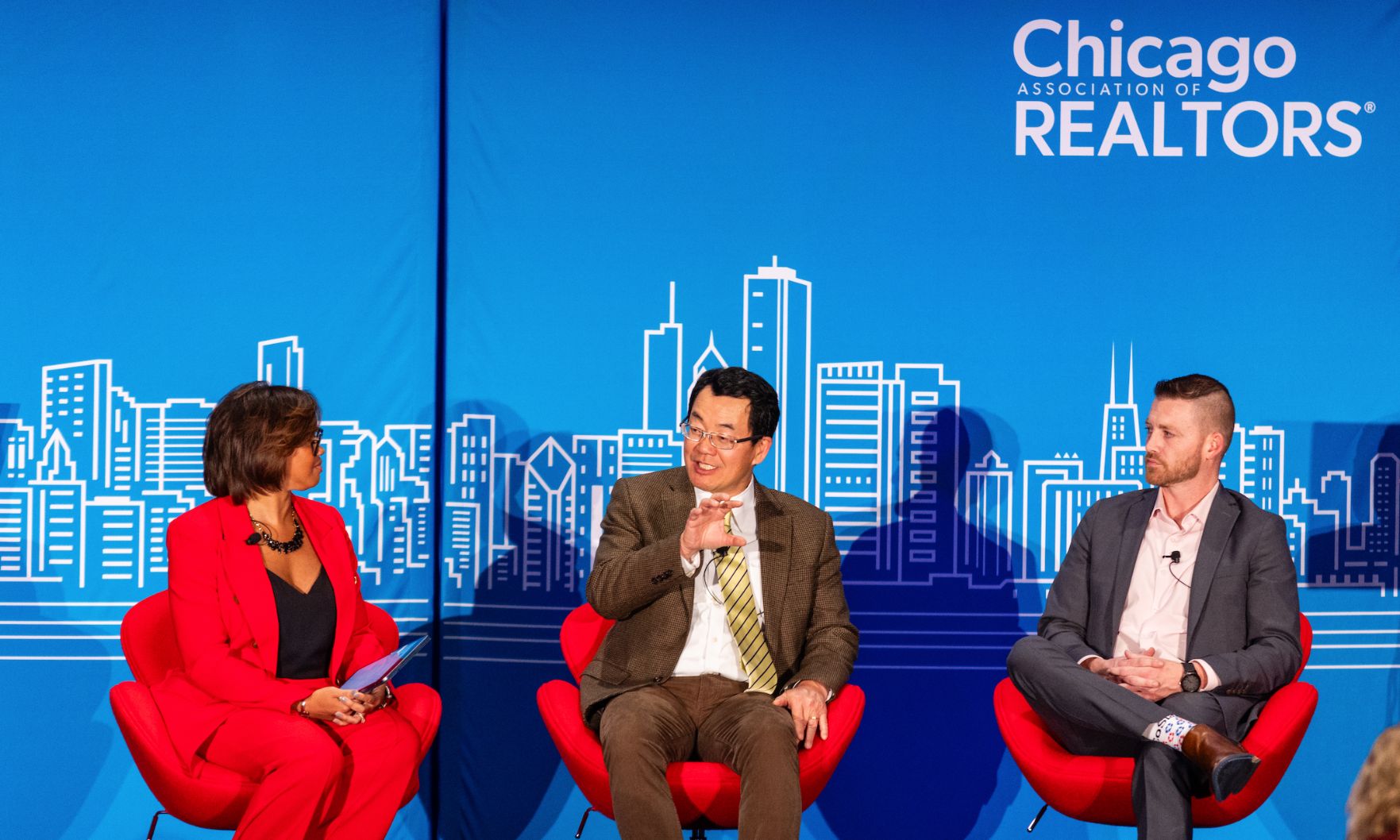The Federal Reserve has indicated three planned rate cuts for 2024, but Dr. Lawrence Yun is expecting four or five. The National Association of REALTORS® chief economist shared that thought at a recent Market Outlook event — eliciting audible “Oohs” and applause from around the room.
Yun kicked off the evening, which was hosted by the Chicago Association of REALTORS® (CAR) at the Marriott Marquis Chicago on Jan. 18. Hundreds of local agents attended.
In his speech, Yun detailed apartment construction growth across country — the highest rate in 40 years, according to his data — stating that there is now an oversupply. So, with vacancy rates rising, rents are beginning to fall. “Rent is a major contributor to consumer-price inflation. As that goes down, it will encourage the Fed to cut rates,” Yun said.
Still, Yun emphasized low interest rates in the 3% range are a thing of the past. “If you’re younger than me, there’s hope, but for the remainder of my lifetime I don’t see 3% (happening again),” he said. “6.5% could be the new normal … Definitely not great, but better than 8%.”
After Yun’s presentation, Brandon Svec, national director of U.S. Retail Analytics for CoStar Group, took to the stage to offer the commercial perspective, however, he also focused on rising residential vacancy. As the national vacancy rate hovers over 7%, Svec said we’re bordering along a “hyper-supply recession phase.” However, he noted, “Chicago didn’t participate in the (recent) building boom.”
Chicago had 10,000 units delivered throughout the last year, which is less than 2% of the city’s inventory. So, unlike many major Sunbelt markets now seeing rent decreases, Svec said, “Chicago’s fundamentals are maintaining balance.”
Yun then joined Svec on stage for a Q&A session, moderated by CAR CEO Michelle Mills Clement. During that talk, Yun stressed the need for more inventory.
“We cannot have another price spike,” Yun said. “It will lead to a permanent divide between haves and have-nots. Renters who want to be homeowners essentially feel hopeless in this situation. We don’t want to create further divide.” He was hopeful though, noting that he thinks inventory will rise 30% this year.
Svec also weighed in on the dwindling housing stock. Despite low inventory levels, He doesn’t expect many offices to flip residential. “It’s costly and not easy to execute,” Scev said of the process, “especially in tall, urban buildings.” Although Svec added that some stock may turn over with public incentive, in the end, he said it’s possible with less than 5% of office buildings.
